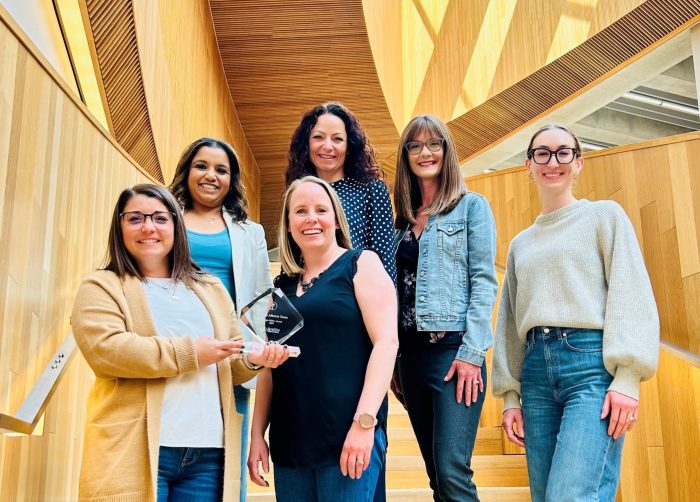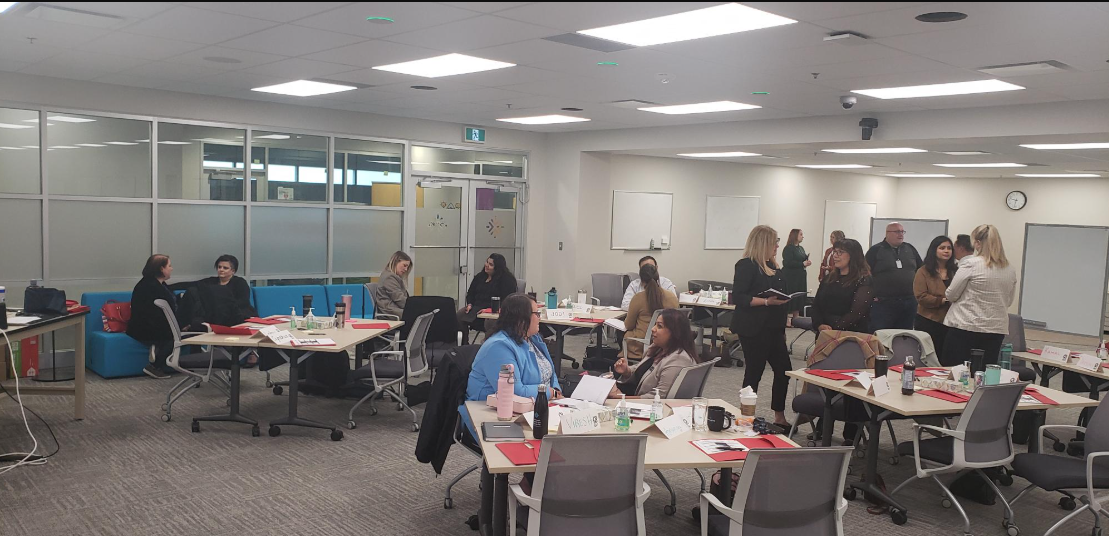For thousands of Albertans dreaming of starting a family, the path to parenthood can come with unexpected and overwhelming financial hurdles.
While most medical care is covered, building a family through fertility services often comes with a staggering price tag—tens of thousands of dollars for over 250,000 Albertans. This gap leaves many facing a difficult and expensive journey to parenthood.
“Fertility care is healthcare,” says Michelle Chidley, Co-Founder and Chair of Fertility Alberta. “Yet for the one in six Albertans who require fertility care to build their families, they have to pay for that healthcare out of pocket.”
Each year, approximately 13,000 Albertans are referred to one of the province’s four fertility clinics, but fewer than 20% proceed with treatment.
“Most of them are not proceeding because of the cost,” Michelle explains. With a lack of publicly funded programs in the province and little awareness, Michelle was inspired to take action.
From lived experience to leadership
After experiencing the challenges of fertility treatment firsthand, Michelle co-founded Fertility Alberta in 2023.
“Personally, I was a patient,” she says. “All of our board [members] are current or former fertility patients.” The board brings together a range of lived experiences—from male factor infertility and endometriosis to fertility preservation due to cancer.
“Starting Fertility Alberta took quite a bit of time,” Michelle recalls. “It was a big, heavy lift to just even become an official nonprofit and then we started the work.”
“We’re the only organisation like ours that exists in this province,” she adds.
As the province’s only nonprofit dedicated solely to fertility care access, Fertility Alberta has become a vital voice in the broader healthcare and policy conversation.
“All of us were united in the passion and desire to make the journey of patients coming behind us just a little easier,” Michelle shares.
Beyond Infertility: Who needs fertility care
While “one in six” speaks to those with medical infertility, Fertility Alberta is clear that the need for care goes far beyond that number.
“That [number] does not count the people that require fertility care to build their families outside of having an infertility diagnosis,” says Michelle.
“Single parents by choice require fertility doctors to help them. Members of the 2SLGBTQIA+ community require fertility care. If you are of reproductive age and have had a cancer diagnosis, you have the option to preserve your fertility.”
Michelle also notes the impact of social and generational shifts. “In Canada right now, the average age of a first-time mother is almost 32 years old. That number has increased steadily for five decades.”
With people waiting longer to start families, fertility challenges are becoming even more common.
At the same time, the emotional weight of these journeys is often overlooked.
“The stress that fertility patients feel going through a fertility journey is the same level of stress as cancer or AIDS patients,” Michelle says. “It is a mental health issue.”
Advocacy, awareness and a role for business
Fertility Alberta is currently working with the Alberta government on what a made-in-Alberta fertility program could look like.
“I’m hopeful that in the shorter term we see something come out of that and that a program will be implemented in the next year or two,” Michelle says.
In addition to government lobbying, Fertility Alberta is also reaching out to employers and insurance providers.
“We’ve been advocating to insurance companies and employers, especially large employers in Alberta, to add or increase their fertility benefits,” she explains.
In 2024, Fertility Alberta received Fertility Matters Canada’s National Change Maker award and supported the Vanier Institute’s federal report on fertility care in Canada. Today, the nonprofit is working with Mount Royal University on a study exploring the impact of fertility journeys on employment.
“We just kick-started the survey to start the research at the end of April,” Michelle says.
The organization also joined the Calgary Chamber to broaden its reach and build support. “The Chamber in general has been supportive of our work,” says Michelle. “The more people that you have on your side—the advocates and the third-party supporters—the better.”
Fertility Alberta’s vision goes beyond policy change; it’s also about reshaping how society sees fertility and family.
“A nuclear family isn’t what it looked like in the 1950s,” Michelle says. “The more we normalize that, the easier it is for people going through those journeys to not feel alone and isolated.”
For more information about Fertility Alberta, visit their website: fertilityab.com.







